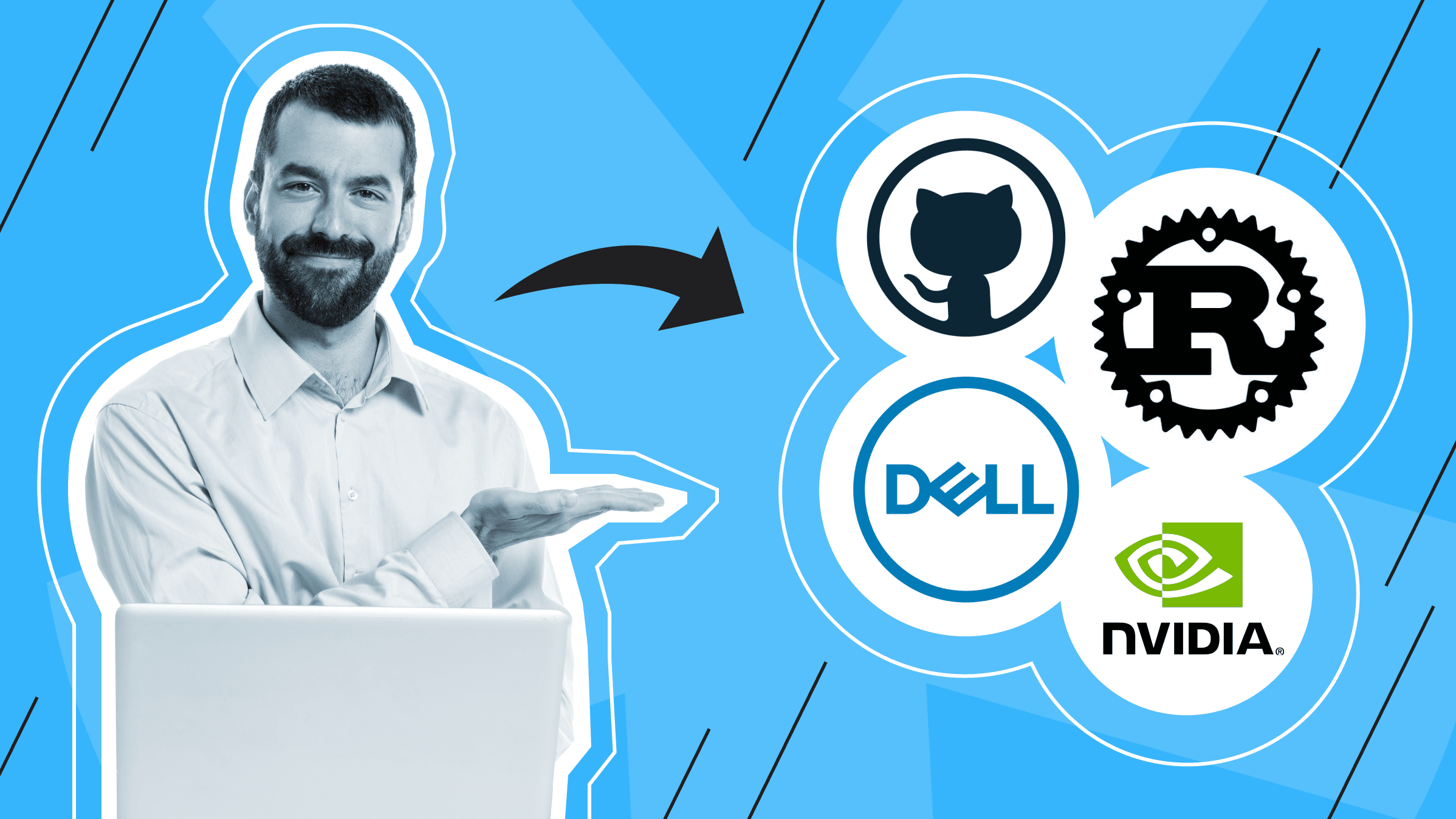
March 2024 brings exciting news in programming, security, and artificial intelligence. Developers will be interested in Rust language's update to version 1.77, which supports C-style strings and removes restrictions on recursive calls in asynchronous functions.
GitHub users will find the beta testing of the auto-correct feature for vulnerability scanning useful. Refactoring will be easier with this.
Additionally, Dell and Nvidia have announced a first-of-its-kind enterprise-scale integrated AI system.
All other significant updates are in the March digest!
Windows Server Updates Cause Domain Controllers to Fail

The March 2024 updates for Windows Server 2016 and 2022 (KB5035855 and KB5035857) have been causing domain controllers to crash and reboot due to a memory leak in the Local Security Authority Subsystem Service (LSASS) process. This issue has only affected enterprise customers.
Administrators can temporarily resolve the issue by removing the problematic updates. On affected servers, LSASS memory usage increases until all available memory is used up, causing systems to hang and reboot.
To uninstall, using the wusa.exe command line tool or hiding updates in the Show or Hide Updates troubleshooter is recommended.
Microsoft has released emergency patches to fix problems caused by updates:
- Windows Server 2022: KB5037422.
- Windows Server 2019: KB5037425.
- Windows Server 2016: KB5037423.
- Windows Server 2012 R2: KB5037426.
Release of GNOME 46 and the Framework for Developing GNOME Apps in Swift

GNOME is a well-liked open-source desktop environment for Linux, recognized for its simplicity and accessibility. It provides an intuitive user interface and a vast ecosystem of applications.
The Adwaita for Swift framework, introduced in the Swift blog, takes full advantage of Apple's Swift language to develop applications for the GNOME platform. The framework uses native features of the Swift programming language to develop GNOME applications. The developers note that Adwaita already has Rust, Python, and JavaScript implementations.
Among other benefits, the following are highlighted:
- Creating cross-platform applications running on Linux, macOS, and Windows with a single code base.
- Sharing Swift code between SwiftUI applications and GNOME applications.
- Creating new GNOME applications using Swift, achieving excellent code readability and memory safety.
Meanwhile, the GNOME project has announced the release of GNOME 46, 'Kathmandu'. This release introduces remote login via RDP, variable refresh rate (VRR), and many accessibility improvements.
- The Files app has a new global search feature and improved performance when switching views.
- Online Accounts now supports OneDrive and has a new WebDAV account type.
- The Remote Login feature allows you to connect to GNOME systems remotely.
- The Settings app has received improvements such as reorganized navigation and new touchpad settings.
- Accessibility improvements such as Orca tablet navigation and experimental Spiel support.
- System improvements such as attractive avatars and additional notifications.
- Updated apps such as Programs, Maps, Extensions, Calendar, Clock, and Disks.
- Performance, security, rendering, and variable refresh rates have been improved.
- New Circle apps include Errands, Letterpress, Switcheroo, and more.
The new version of GNOME emphasizes improving the user experience and project efficiency.
GitHub Tests Code Scanning Autofix System

Starting on March 20, code scanning and auto-fixing are available in public beta for all GitHub Advanced Security customers.
When a vulnerability is detected in a supported language, the patch suggestions will include a natural language explanation of the fix and a preview of the code suggestion. The developer can accept, edit, or reject the fix.
It is specified that the suggested fixes address more than two-thirds of the vulnerabilities found with virtually no editing.
Dedicated Server
The ideal solution for large-scale projects. Impeccable protection, high performance, and flexible settings.
GitHub Copilot and CodeQL power the solution, which covers over 90% of alert types in JavaScript, Typescript, Java, and Python. Support for new languages, such as C# and Go, is coming soon.
The purpose of code scanning autofix is to make it easier for developers to fix vulnerabilities while writing code. GitHub Copilot performs a similar task.
Rust 1.77 Release

The Rust 1.77.0 release is relatively minor but contains valuable changes. The main improvements include support for C-string literals, removing restrictions on recursive async functions, and stabilizing the offset_of! macro.
So, the following improvements can be highlighted:
- C string literals (c "abc") are now supported, making writing code that interacts with C APIs requiring null-terminated strings easier.
- Recursive calls in asynchronous functions are now allowed using redirection to avoid infinite function state size.
- The offset_of! macro is stabilized, providing access to the byte offset of struct fields without an instance.
- Cargo profiles not enabling debuginfo will strip debuginfo by default for standard library debugging.
- Several standard library APIs, including array/slice iteration/chunk functions, are stabilized.
- Other changes include enabling strip in release profiles by default and stabilizing additional APIs.
If you have a previous version of Rust installed via rustup, you can get 1.77.0 using: $ rustup update stable. Otherwise, you can get rustup from the website and read the detailed release notes for 1.77.0.
Nvidia and Dell Unveil AI System for Connecting PCs, Storage, and Networking Devices

At the NVIDIA GTC conference, Dell Technologies announced the Dell AI Factory with NVIDIA. It is the industry's first end-to-end artificial intelligence solution designed to unify Dell computing, storage, and networking with NVIDIA GPUs, networks, workstations, and notebooks.
The AI Factory supports various artificial intelligence use cases and applications. The new solution supports the entire GenAI lifecycle, including inference, reinforcement-assisted learning (RAG), model customization, development, and training.
Dell and Nvidia are partnering to create a large-scale artificial intelligence system. The system will use a Dell PowerEdge XE9680 with Nvidia's latest GPUs, Spectrum-X Ethernet platform, and Dell PowerScale F710 storage.
The AI Factory will be accessible through Dell's APEX flexible payment system. NVIDIA GPU servers can accelerate compute-intensive AI, data science, and graphics rendering workloads. This technology provides massively parallel processing capabilities for deep learning and high-performance computing.
Have a great month, and see you in the next is*hosting digest!
VPS
Choose the suitable configuration and enjoy all the benefits of a virtual private server.
From $5.00/moDedicated Server
Smooth operation, high performance, and user-friendly setup - it's all there for you.
From $70.00/mo

